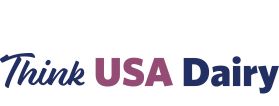Managing Price Volatility

International buyers of dairy products have as a primary goal to secure consistent supply at a stable and controllable price. However, the volatility of the global dairy market can prove challenging in mitigating financial exposure. Risk management tools are here to help buyers secure steady supply of U.S. dairy products!
In fact, the United States is home to the most developed dairy risk management tools in the world, with some of the Dairy Futures contracts in existence for over 20 years. Trading volumes and open interest in U.S. Dairy Futures contracts are significantly higher than any other international contracts, making it easier to execute risk management plans and control the volatility of U.S. dairy prices.
What is Risk Management?
Risk management is the identification, assessment and prioritization of risks, followed by planned efforts to minimize the probability of negative impact to one's business. When sourcing dairy products unpredictable events and adverse price moves (volatility) in the price of the commodities can have a real and measurable impact on your bottom line. Risk management can enable you to protect against the adverse price movements and potentially extend the periods of favorable pricing.
The ability to secure input pricing through forward contracts or financial pricing tools such as futures, options and over-the-counter accounts (OTCs) allows you to create certainty around the pricing and margin applicable to your business. Risk management is about taking control of traditionally difficult to control parts of your business and asserting your will upon otherwise uncontrollable and volatile factors impacting your ability to be successful.
Setting up a diversified plan amongst available tools allows a Commodity Risk Management Plan a greater chance at successfully smoothing out the peaks and valleys of extreme price ranges amongst commodity input prices which could put a buyer out of business. The objective is to create certainty.
How Does this Work?
The Chicago Mercantile Exchange (CME) is the marketplace where U.S. Dairy Futures and Options contracts are traded. The CME Group is the world's leading and most diverse derivatives marketplace, handling 3 billion contracts worth approximately $1 quadrillion annually (on average).
The CME provides two important functions:
- Price Discovery: all bids, offers and trades are public and available for the world to see. No one knows who the buyers or sellers are in the market at any point in time, but the prices that people bid, offered or traded are all made public and that allows price discovery.
- Risk Transfer: when a price is discovered that is of interest to one's business, the CME allows the transfer of the risk inherent to the existing business to another anonymous party by the purchase or sale of a Futures contract (or Option).
If you are a buyer sourcing physical commodities from a U.S. supplier, the chances are strong the price you will pay for your physical product will correlate well with the U.S. pricing mechanism utilized by the CME. Thus the CME allows you an independent and anonymous source through which you can set Forward prices for commodities when suppliers are unable to do so. Cheese, whey, milk, butter and milk powders are all traded on the CME so if you are concerned that prices will rise, you can buy CME Futures to fix price in place of a supplier Forward contract, up to 24 months in the future.
Click below to review 2 practical examples:
Interested in Exploring Risk Management Solutions?
Risk management tools are not just for U.S. suppliers to use, buyers can also participate and manage their own financial exposure. In order to access the CME, buyers must go through a licensed and regulated entity most commonly known as a broker. Buyers interested in connecting with a broker may search for such Service Providers in our U.S. Dairy Supplier Directory.
Buyers are also encouraged to talk to their U.S. dairy suppliers about risk management tools they may offer.

.jpg)